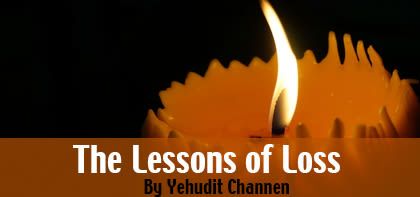
The Lessons of Loss
In a beautifully candid and heart-rendering account, Rebbetzen Yehudit Channen reveals her inner struggle with herself following the loss of her eight-month old baby...

Three years after I got married, my second child became ill and died. It was the first day of the holy month of Elul and he was eight months old. This was for me, a complete crisis of faith, but not of my faith in God. It was my faith in myself that shattered and left me feeling like the woman with the scarlet letter.
I felt branded as a person who had obviously sinned big time. I felt as I had when caught talking in class (which happened a lot). The teacher would call out my name and everyone would turn around in their seats to watch me as the teacher dispensed her punishment. “Detention for you! Everyone else gets to go home.”
Along with the suffocating trauma of losing my baby, I experienced overwhelming shame. Shame that I needed such a harsh punishment, such a wake-up call from God! I imagined everyone wondering what awful things I’d been doing lately or had done in the past. I was ashamed of the pain I was causing my parents by losing their grandson. I was embarrassed to be bringing grief to my community of young couples, raining on everyone’s parade, a big party-pooper whose bad luck was possibly contagious.
I was so grateful for the kindness of my Rabbi, neighbors and family, although I felt undeserving. Secretly I wondered how, if I had really done teshuva (repentance) and become religious, this could happen. Why 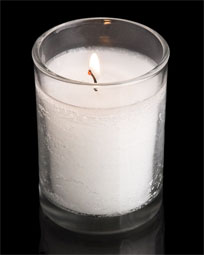 now? Why me? I was wretched, wanting only to hide in my room with my anguish, but every morning of the shivah (mourning week) my husband forced me to come out and receive condolences.
now? Why me? I was wretched, wanting only to hide in my room with my anguish, but every morning of the shivah (mourning week) my husband forced me to come out and receive condolences.
It was hard. No one really knew what to say. My friends were only in their twenties, with babies of their own. I felt their compassion and heard their words of comfort, but I also sensed their horror at what had happened and their relief that their own babies were safe at home. Everyone meant well but many tactless things were said during awkward moments. One woman even brought her baby and sat down in front of me with him on her lap. It was unbearable. Years later I wrote an article on the dos and don’ts of shivah calls.
Yet there were moments of such empathy and sharing. One of my friends was so distraught she proceeded to clean and scrub my refrigerator, kitchen, and then my whole apartment. People brought hot meals every day and tried to offer me some shred of comfort. Others shared their own personal struggles with loss. These things filled me with a gratitude so deep that I have never forgotten them.
The following weeks were full of intense learning. I had never put so much energy into thinking about the world to come. I realized that above all else, I wanted my son’s death to be meaningful. If I didn’t grow spiritually and emotionally from the experience, then his death, for me personally, was in vain.
I returned to my Torah classes and continued praying for Hashem to heal me. It struck me that I was turning for comfort to the very same Being who had caused me such agony. It reminded me of a child who, in the midst of crying, wants to be picked up and held by the same parent who scolded him.
In the beginning, waking up to another day without my baby was indescribably painful. His things were scattered all around my room. I was so comforted when a friend came to help me pack them away. We wept together at the sight of all his little outfits.
Only someone who has lost a baby can begin to fathom the heartache, the horror and the guilt. After all, I was his mother. How could my baby die on my watch? Was this the great job I had done with the sweetest gift anyone could receive? I felt like a complete failure. I tortured myself with the things I should have, could have and would have done. And I assumed I would never be granted another child. In my mind, I had been fired from the job of mothering.
I couldn’t speak to my husband. Unable to express his feelings, he retreated to the Beis Midrash and buried his pain in the books. I couldn’t stop crying, and he felt helpless and frustrated. We were trying to connect, but we were young and confused. Neither of us could appreciate the other’s way of mourning.
Our love for each other was smothered in sadness. We had lost our youthful innocence along with our son.
Thank God, that we never lost our faith in Him. And we were so grateful for our firstborn son and lavished him with affection. This eased the pain.
Looking back, I’m pretty impressed. At that point we had only been married a few years. The life we had built together could definitely have soured. Unremitting grief can destroy a person, a marriage and a family. But I was determined it wouldn’t happen to us.
A few months later I found out I was expecting again. Nothing could have brought me back to life the way that did. I felt that God was saying He believed in me and that, yes, I was still mother material. I also began to accept that my son had his own relationship with God. There could be so many reasons that he died when he did. He had a soul of his own and that soul had a mission. It was about me but not solely about me.
The same year my baby died, my cousin, who lived in California and was married to a movie producer, also lost a young son. She was not religious and despite all her wealth, she was unable to find any consolation. Several months later she committed suicide. It was a double tragedy.
But I will never ever judge her, because without my firm belief in God and the support of my religious community, I may have succumbed as well.
I have the gift of the Torah and its teachings. I know that God values me deeply and has a reason for everything He does. I know that we are on this earth to be tested and to use those tests to grow in our faith. Jews are promised a revival of the dead and I look forward to that time of unimaginable joy.
My cousin had none of these comforts and life without faith must have seemed random and cruel. If the death of a child is devoid of any meaning, then there is no way to find peace.
Before the year ended, my husband and I were blessed with another son and many more children throughout the years. Each child was a further comfort. And the appreciation I had for each one, for the fact that they were completely healthy, gave me a perspective beyond my years. I didn’t sweat the small stuff.
But what really rebuilt my self-esteem (my own revival of the dead, so to speak) was what happened those first few months following the death. This was the fact that, despite my guilt and despair, I was still able to cling to God, to Judaism, and to my husband. That made me feel like the kind of person who never gives up. And God never gave up on me.


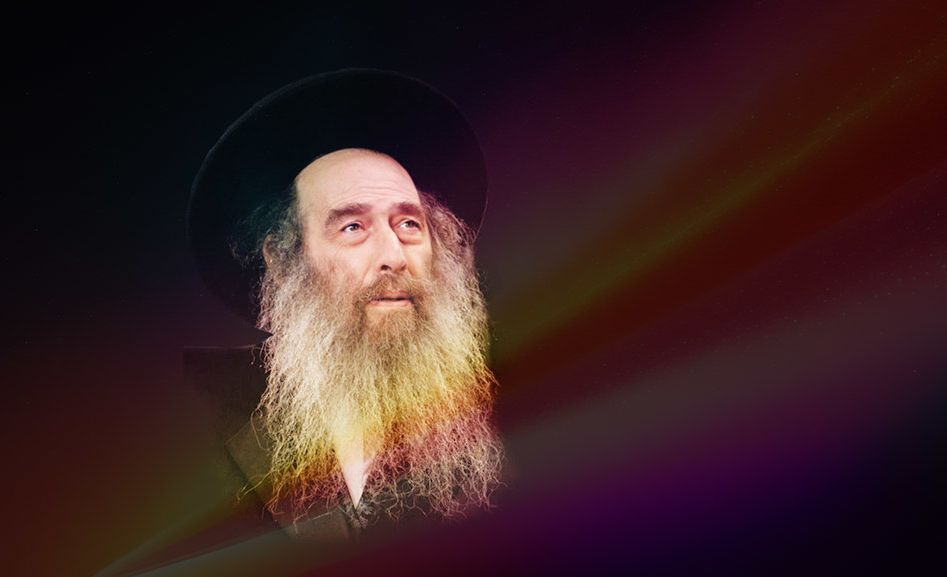

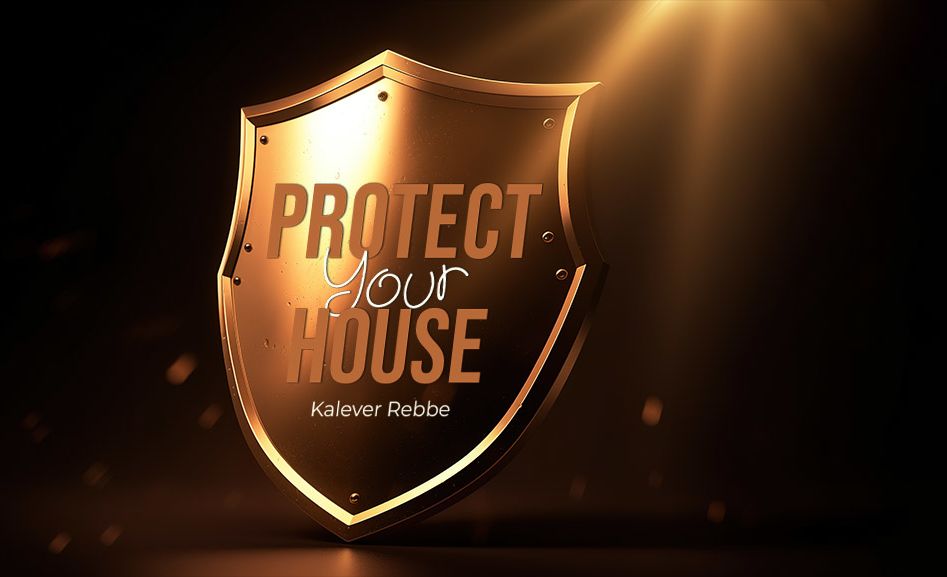




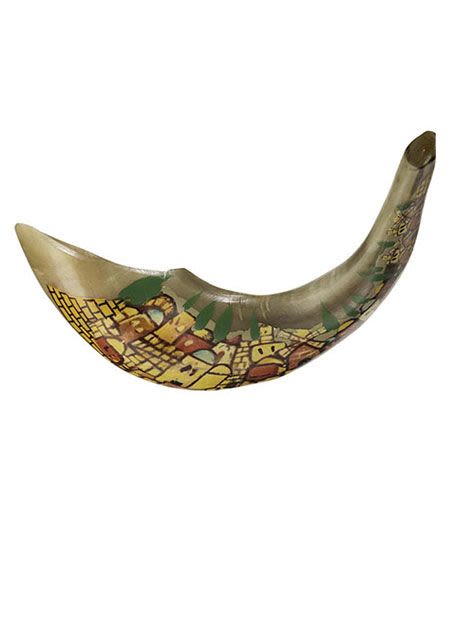
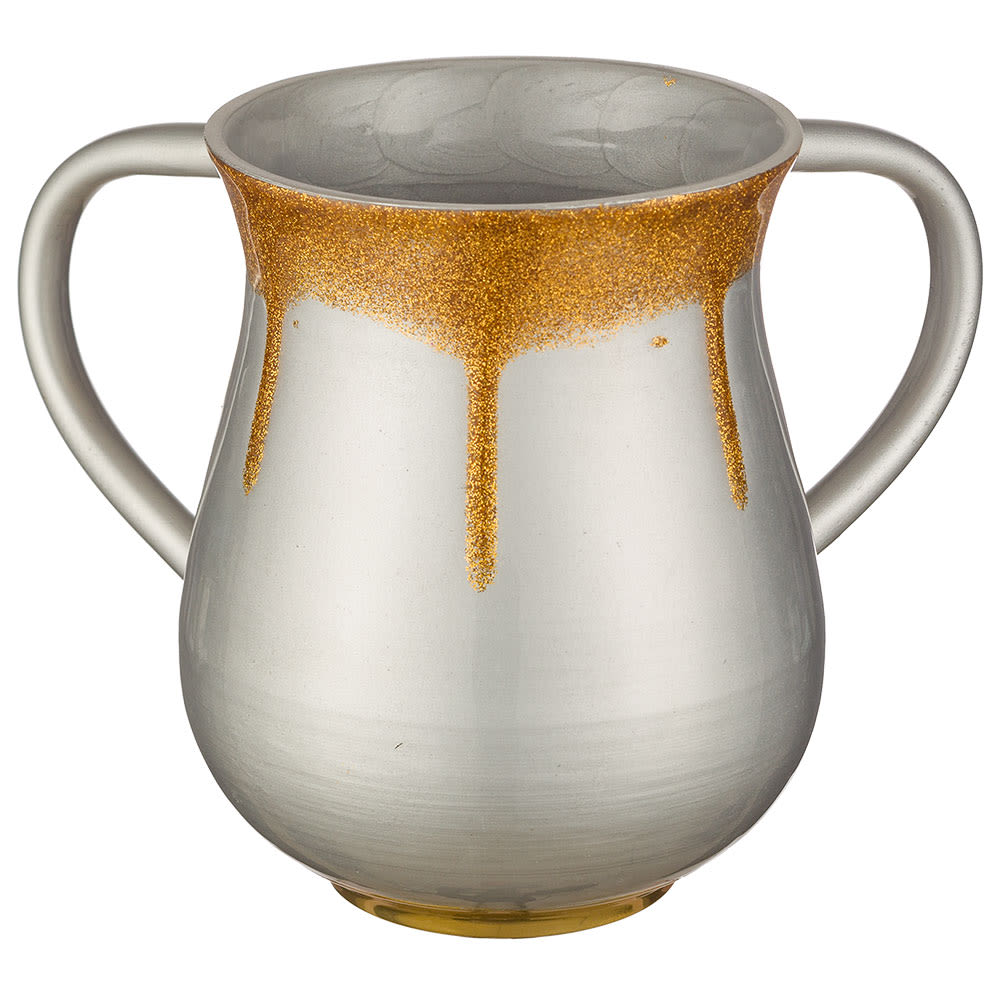
Tell us what you think!
Thank you for your comment!
It will be published after approval by the Editor.